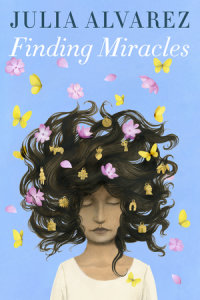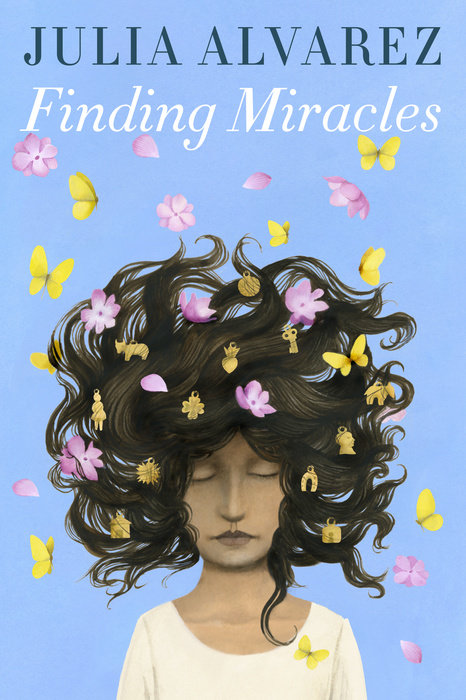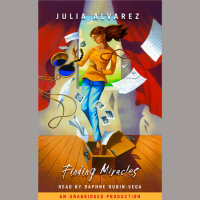I took the class where we wrote stories with Ms. Morris. It was a three-week elective we could do on the side with regular English class. I did it because, to be truthful, I needed the extra credit. I’ve always had big problems with writing, which I’m not going to go into here. I knew my English grade, a C, was rapidly gyrating into a D. So I signed up.
“Stories are how we put the pieces of our lives together,” Ms. Morris told us that first class. The way she talked, it was like stories could save your life. She was like a fanatic of literature, Ms. Morris. A lot of kids didn’t like her for that. But secretly, I admired her. She had something worth giving her life to. Except for saving my mom and dad and sister, Kate, and brother, Nate, and best friend, Em, and a few other people from a burning building, I didn’t have anything I could get that worked up about.
“Unless we put the pieces together we can get…
I took the class where we wrote stories with Ms. Morris. It was a three-week elective we could do on the side with regular English class. I did it because, to be truthful, I needed the extra credit. I’ve always had big problems with writing, which I’m not going to go into here. I knew my English grade, a C, was rapidly gyrating into a D. So I signed up.
“Stories are how we put the pieces of our lives together,” Ms. Morris told us that first class. The way she talked, it was like stories could save your life. She was like a fanatic of literature, Ms. Morris. A lot of kids didn’t like her for that. But secretly, I admired her. She had something worth giving her life to. Except for saving my mom and dad and sister, Kate, and brother, Nate, and best friend, Em, and a few other people from a burning building, I didn’t have anything I could get that worked up about.
“Unless we put the pieces together we can get lost.” Ms. Morris sighed like she’d been there, done that. Ms. Morris wasn’t exactly old, maybe about Mom and Dad’s age. But with her wild, frizzy hair and her scarves and eye makeup, she seemed younger. She lived an hour away near the state university and drove a red pickup. Occasionally, she referred to her partner, and sometimes to her kid, and once to an ex-husband. It was hard to put all the pieces of her life together.
Ms. Morris had this exercise where we had to jot down a couple of details about ourselves. Then we had to write a story based on them.
“Nothing big,” she said to encourage us. “But they do have to be details that reveal something about your real self.”
“Huh?” a bunch of the guys in the back row grunted.
“Here’s what I mean,” Ms. Morris said, reading from her list. She always tried out the exercises she gave us. “The morning I was born, I had to be turned around three times. Headed in the wrong direction, I guess.” She looked up and grinned, sort of proud of herself. “Okay, here’s another one. When I was twelve, an X‑ray discovered that I had extra ‘wing bones’ on my shoulders.” Ms. Morris spread her arms as if she was ready to fly away.
The huh guys all shot a glance at each other like here we are in the Twilight Zone.
“So, class, a detail or two to convey the real you! Actually, this is a great exercise in self-knowledge!”
We all groaned. It was kind of mandatory when a teacher was this kindergarten-perky about an assignment.
I sat at my desk wondering what to write. My hands were itching already with this rash I always get. Since nothing else was coming, I decided to jot that down. But what came out was, “I have this allergy where my hands get red and itchy when my real self’s trying to tell me something.” For my second detail, I found myself writing, “My parents have a box in their bedroom we’ve only opened once. I think of it as The Box.”
Ms. Morris was coming down the rows, checking on our progress. “That’s great!” she whispered when she read over my paper. Now my face, along with my hands, turned red. “You could tell an interesting story with just those two facts!”
“I made them up,” I said a little too quickly. Oh yeah? All she had to do was look at my hands.
“Then write a story about a character for whom those two facts are true,” Ms. Morris shot back. You couldn’t get around her enthusiasm, no way.
I felt relieved when music sounded over the loudspeaker for the end of the period. That’s a telling detail about our school. Instead of bells, we get music, anything from classical to “Rock-a-bye, Baby” to rock. I guess we’re free spirits in Vermont. Bells are too uptight for us.
I ended up writing some lame, futuristic story about this girl alien whose memory chips are kept in a box that she can’t open because her hands need rebooting. Some idea from a late-night movie Em and I had seen on TV at her house, where her parents have a dish and get all the weird channels.
I could tell Ms. Morris was disappointed that I didn’t write about my own life. And though my hands kept breaking out in rashes, trying to tell me Milly! It’s time!, I wasn’t ready yet to open my box of secrets.
But sometimes, like with my allergies, it takes an outside irritant to make you react. My outside “irritant” showed up the next day in Mr. Barstow’s class.
He stood in front of us, head bowed, so you couldn’t really see his face. His skin was golden brown like mine gets in the summer after a few weeks in the sun.
Mr. Barstow, our homeroom/history teacher, was introducing him: Pablo something something something--he must have had about four names. “Let’s give our classmate a warm welcome!”
Warm welcome was right. It was one of those freezer-compartment January days when even people who love winter have to ask themselves, Am I out of my mind? I wasn’t one of those people, winter lovers I mean. But from time to time, I had my own reasons to ask myself, Milly, are you out of your mind? Loving winter was not one of them.
“Hey, class, come on. You can do better than that!” When he wasn’t teaching World History or being our homeroom teacher, Mr. Barstow was the football-basketball-baseball coach. He could work up a crowd. He had less luck with ninth-grade homeroom in the middle of winter.
We managed a lukewarm applause.
Pablo wasn’t dressed for cold weather at all. He had on a short-sleeve khaki-colored shirt and a pair of new jeans that looked like they’d been ironed. Nobody at Ralston High wore jeans that were one, new; two, without a rip or tear; three, ironed. He looked so awkward up there. My heart just automatically went out to him.
Mr. Barstow was going on about Pablo, how he had two older brothers, how his parents were refugees. . . . I shifted into classroom cruise control . . . coasting along . . . not paying attention. . . . But then Mr. Barstow said something that made my hands begin to itch and my face darken with self-consciousness.
Em, my best friend, sits one row over and three seats in front of me. I could see her shoulders tense up. She was going to turn around any moment. Please, Em, I thought, please don’t! I just couldn’t stand her drawing any attention to me.



